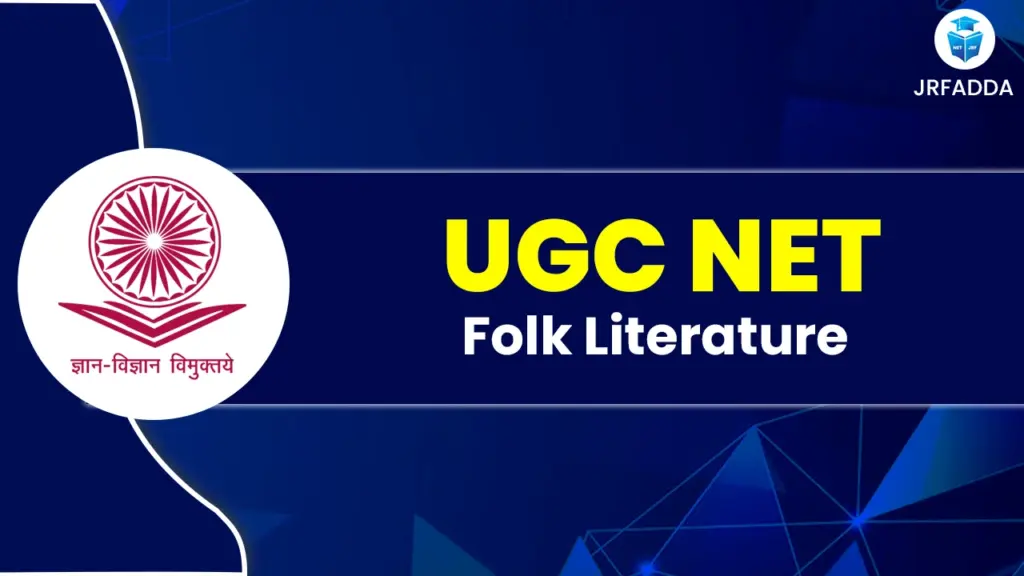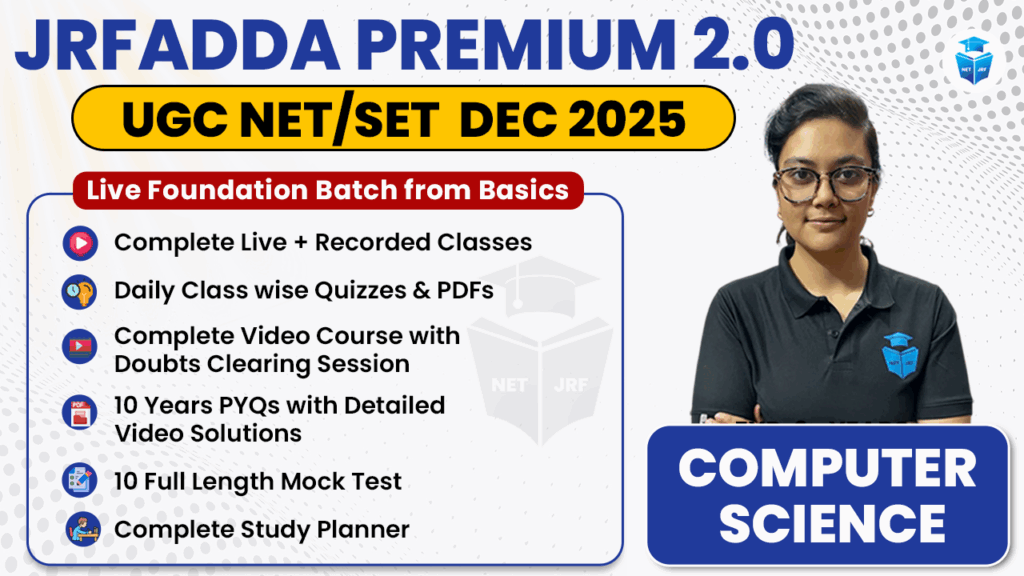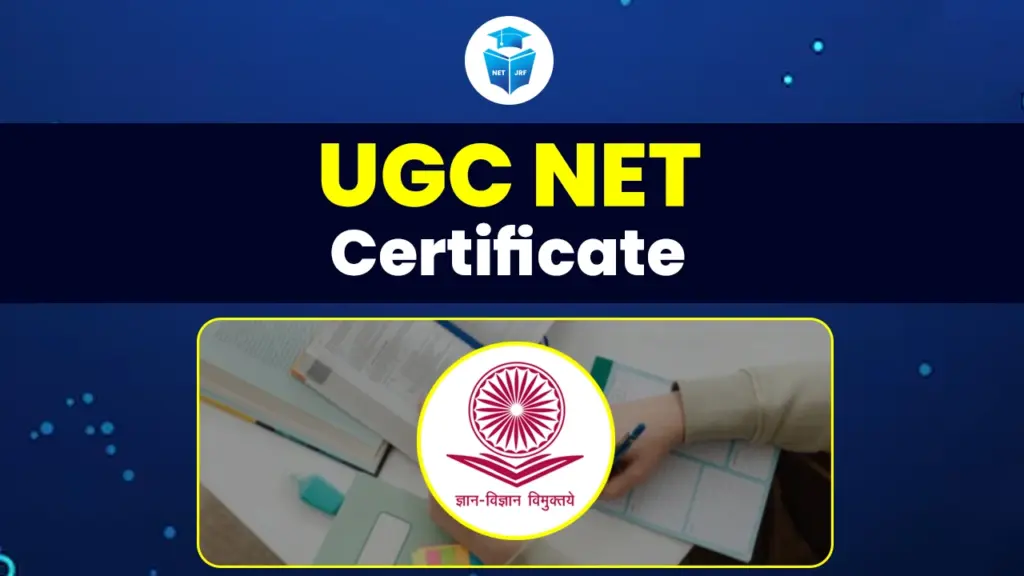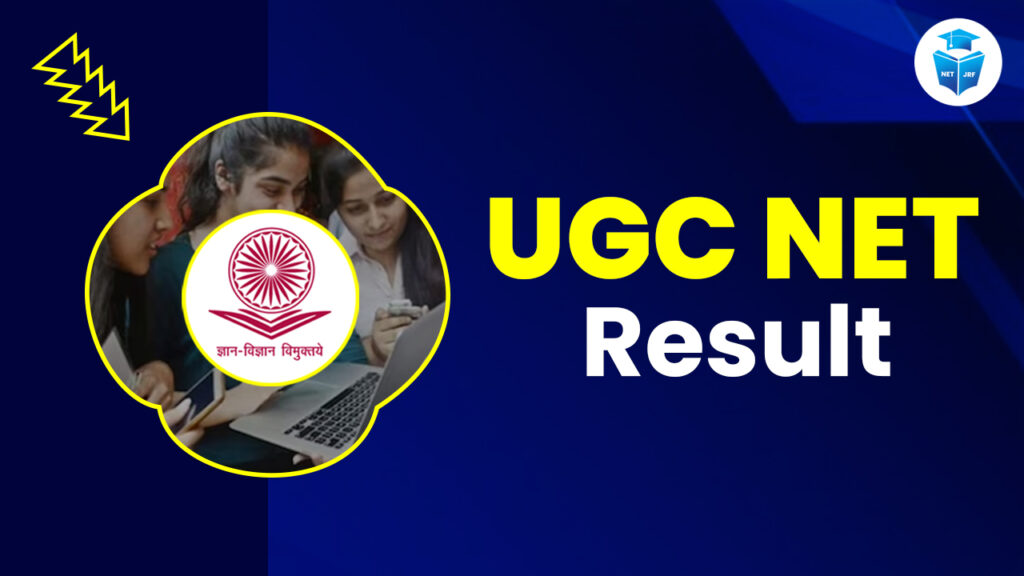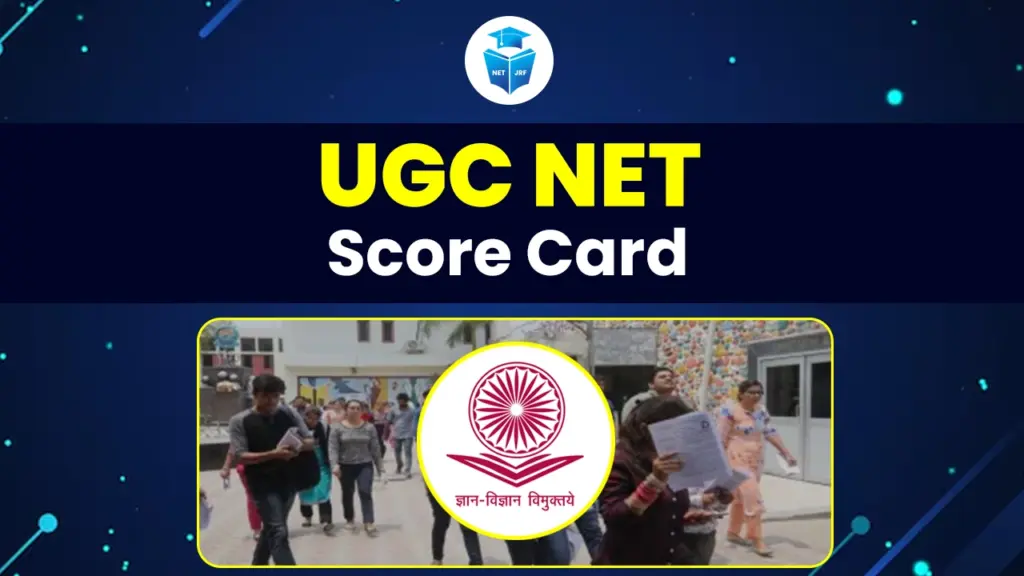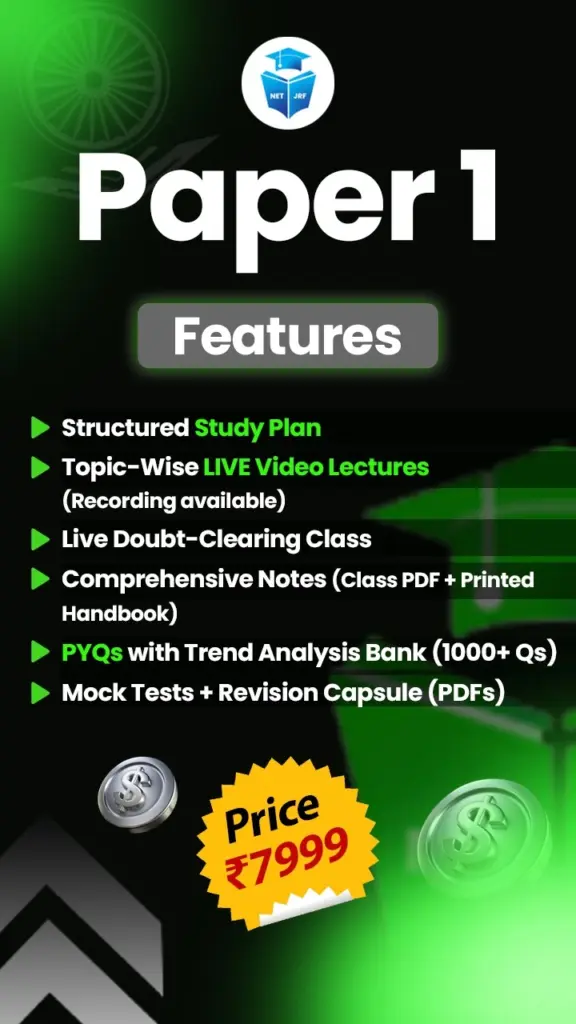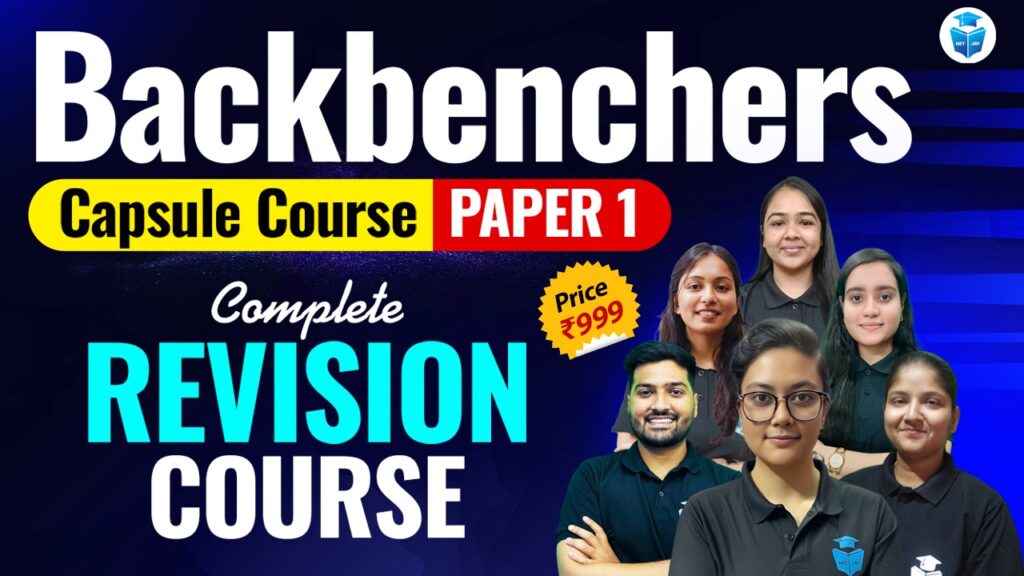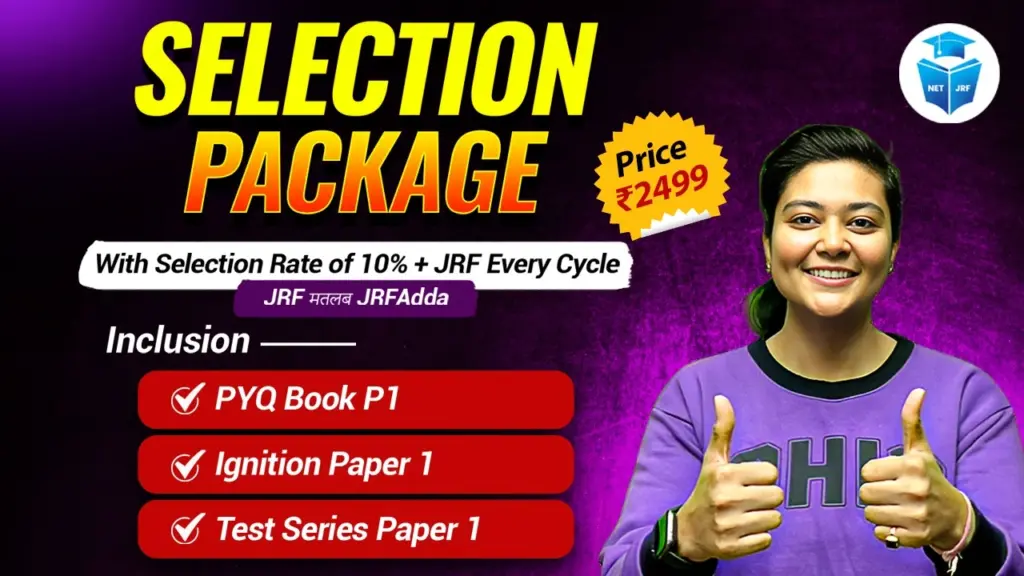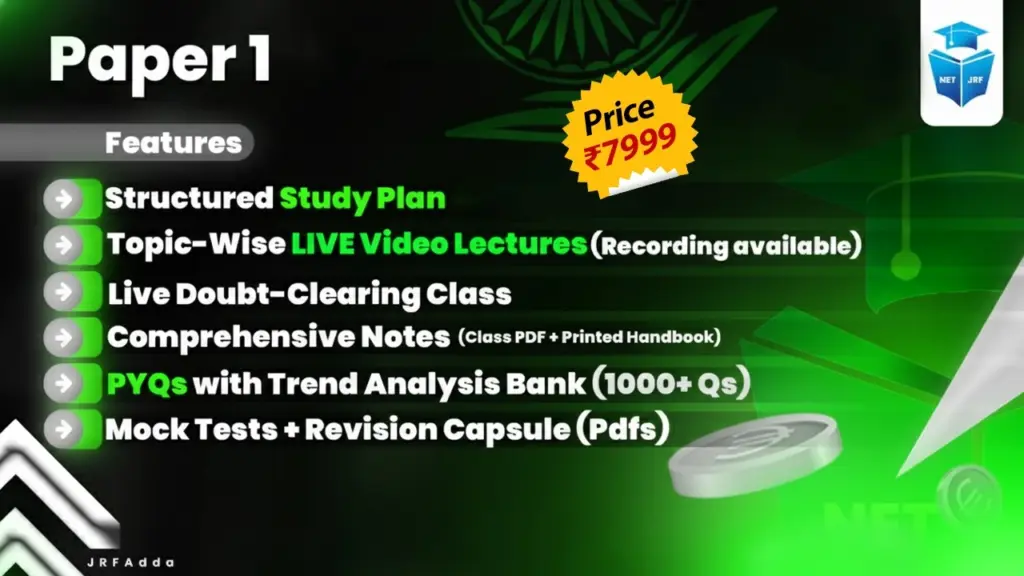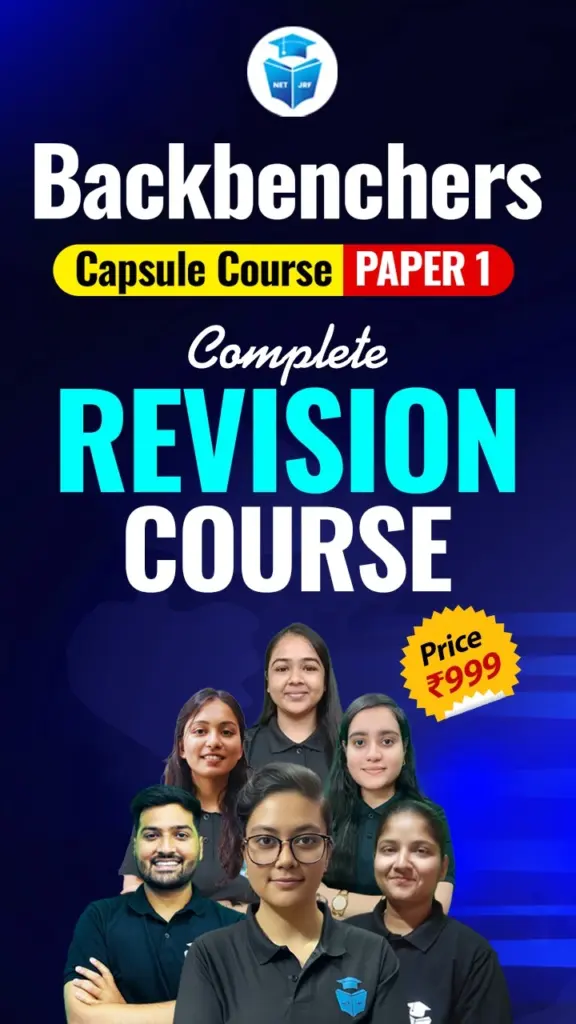The UGC NET Folk literature 2025 exam for 3 January 2026 shift 2, has successfully concluded, and aspirants have shared their experiences and reactions. This article provides a comprehensive overview of the exam, especially focusing on Paper 1 and Paper 2 (Folk Literature), followed by detailed information on the UGC NET Folk Literature subject, including syllabus, preparation tips, and career opportunities.
Also Read: UGC NET Selection Procedure 2026
What is UGC NET Folk Literature?
UGC NET Folk literature consists of oral tradition, legends, folktales, ballads, myths, proverbs, riddles, folk songs, and ritual narratives that are transmitted from generation to generation in many societies. It is very much connected with people’s culture and everyday life and depicts the collective wisdom, beliefs, and social values.
Also Read: UGC NET Result 2025
UGC NET Folk Literature Exam Analysis 2025 on 3rd Jan (Available Soon)
As per the initial feedback from candidates who appeared on January 3rd, 2026, shift 2 the UGC NET 2025 exam presented a moderate difficulty level for Paper 1. Some students mentioned that the questions were somewhat lengthy but manageable with proper preparation.
UGC NET Folk Literature Eligibility Criteria 2026
To qualify for the UGC NET Folk Literature 2026 exam, applicants need to comply with certain requirements pertaining to academic qualifications, age restrictions, and domicile. Following is a detailed summary below:
UGC NET Folk Literature Educational Qualifications 2025
- Master’s Degree: One should hold a Master’s degree or equivalent in Folk Literature or a relevant field from a UGC-approved university.
UGC NET Minimum Marks
- General/Unreserved/EWS: At least 55% marks.
- OBC-NCL/SC/ST/PwD/Transgender: Minimum of 50% marks.
Final Year Students
- Those who are studying for their Master’s or awaiting results may apply.
- Nevertheless, they must finish their degree with the specified marks within two years from the date of NET result to be deemed eligible.
UGC NET Age Limit 2026
- Junior Research Fellowship (JRF): Maximum Age: 30 years.
- Assistant Professor: No age limit.
UGC NET Age Relaxation
- OBC-NCL/SC/ST/PwD/Transgender/Women: 5 years.
- Candidates holding LLM Degree: Further 3 years.
- Research Experience: 5 years, subject to the duration spent on research in the concerned subject.
Also Read: UGC NET Exam 2026
UGC NET Folk Literature Exam Pattern 2025
The UGC NET Folk Literature 2025 exam, which is conducted by the National Testing Agency (NTA), aims at evaluating aspirants’ eligibility for Assistant Professor and Junior Research Fellowship (JRF) positions in the subject of Folk Literature. Knowledge of the pattern of the exam will be necessary for successful preparation.
| Feature | Paper I: General Paper | Paper II: Folk Literature |
| Purpose | Teaching & Research Aptitude | Subject-Specific Knowledge (Folk Literature) |
| Mode of Exam | Computer-Based Test (CBT) | Computer-Based Test (CBT) |
| Duration | 1 Hour (60 minutes) | 2 Hours (120 minutes) |
| Language | English and Hindi | English and Hindi |
| Number of Questions | 50 | 100 |
| Type of Questions | Multiple Choice Questions (MCQs) | Multiple Choice Questions (MCQs) |
| Total Marks | 100 | 200 |
| Marking Scheme | +2 for each correct answer | +2 for each correct answer |
| Negative Marking | None | None |
Also Read: UGC NET Subject Weightage 2026
UGC NET Folk Literature Marking Scheme 2025
The UGC NET Folk Literature 2025 exam is administered by the National Testing Agency (NTA) and contains two papers—Paper I (General) and Paper II (Subject-specific). Knowing the marking scheme is very important for strategic preparation and efficient time management during the exam.
| Paper | Number of Questions | Marks per Question | Total Marks | Negative Marking |
| Paper I | 50 | 2 marks | 100 | No |
| Paper II | 100 | 2 marks | 200 | No |
Also Read: UGC NET Eligibility 2026
UGC NET Folk Literature Minimum Qualifying Marks 2025
To be eligible for the UGC NET Folk Literature 2025, the candidates will have to achieve the minimum aggregate marks in Paper I and Paper II together. These minimum qualifying marks are determined by the National Testing Agency (NTA) and depend on the category of the candidate.
| Category | Qualifying Marks (Out of 300) | Qualifying Percentage |
| General (Unreserved) | 120 | 40% |
| OBC (Non-Creamy Layer) / SC / ST / PwD / Transgender | 105 | 35% |
Also Read: UGC NET Syllabus 2026
UGC NET Folk Literature Syllabus 2026
The UGC NET Folk Literature Syllabus 2026 is designed to evaluate candidates’ in-depth knowledge of folklore, including its theory basis, cultural manifestation, and research techniques. The syllabus is divided into ten units covering different aspects of folk literature.
UGC NET Folk Literature Syllabus Paper 2 2025 – Unit Wise
Here is the unit-wise syllabus for UGC NET Folk Literature Paper II (Subject Code: 71) for 2025, as outlined by the National Testing Agency (NTA):
| Unit No. | Title | Key Topics Covered |
| Unit 1 | Folklore – Definition, Concept, and Classification | Definition of folklore and folkloristics, concepts of “Folk” and “Folklife”, ethnicity, kinship, social categories, classification of folklore genres, theories by Dundes, Dorson, Ben Amos. |
| Unit 2 | Historiography of Folkloristics | Evolution of the term ‘Folk’, folklore as data and discipline, oracy vs. literacy, classical vs. folk traditions, subaltern, tribal, diaspora, and green folkloristics. |
| Unit 3 | Folk Literature | Definition and scope: myths, epics, legends, folktales, songs, proverbs, riddles, speech acts, oral history, and performance art like dance dramas and medicinal chants. |
| Unit 4 | Theories of Folklore – I: Diachronic Approaches | Evolutionary theories (Tylor, Frazer), devolutionary and diffusion theories (monogenesis/polygenesis), Marxist and elitist folklore perspectives. |
| Unit 5 | Theories of Folklore – II: Synchronic Approaches | Structuralism (Saussure, Propp, Levi-Strauss), functionalism (Malinowski, Geertz), psychoanalysis (Freud, Jung), contextual, postmodern, semiotic, and gender approaches. |
| Unit 6 | Folklife and Cultural Performances | Culture as performance (Goffman, Geertz), rites of passage, territorial rites, performance theory, folk narratives, ethnography of speaking. |
| Unit 7 | Public Folklore and Mass Media | Folklorism, folklorization, applied/public folklore, folklore in the public sphere, impact of new media and communication. |
| Unit 8 | Folklore and Globalisation | Global culture theories, modernity, identity in globalization, cultural tourism, neo-folk, protest folklore, and threats to indigenous cultures. |
| Unit 9 | Indian Folk Cultural Practices | Folk theatre, puppet shows, dance-drama, naming systems, religious and medicinal traditions, festivals, dress, food, architecture, customs, worldview, regional variants. |
| Unit 10 | Fieldwork, Documentation, and Archival Practices | Pre/post-fieldwork, ethnographic methods, surveys, documentation, preservation, fieldwork ethics, intellectual property rights (IPR). |
UGC NET Folk Literature 2026 Syllabus PDF Download
If you’re studying for UGC NET Folk Literature 2026, obtaining the official syllabus is essential to plan your studies properly. Below is an extensive link to download the syllabus PDF and analyze its pattern.
| Language | Download Link |
| UGC NET Folk Literature Syllabus (English) | Download UGC NET Folk Literature Syllabus 2025 |
| UGC NET Folk Literature Syllabus(Hindi) | यूजीसी नेट लोक साहित्य सिलेबस 2025 डाउनलोड करें |
Download UGC NET Full Official Syllabus PDF
UGC NET Folk Literature Question Paper 2025 PDF Download
The UGC NET Folk Literature Question Paper 2025 is a crucial study material for candidates who seek to qualify in the Folk Literature discipline. The paper examines candidates’ knowledge of the different concepts of folk literature, such as its definition, classification, and significance.
| Exam Name | Download Link |
| UGC NET Folk Literature 2025 Decemeber | Download Link (Available Soon) |
Also Read: UGC NET Cutoff 2025
UGC NET Folk Literature Previous Year Question Papers
If you are studying for the UGC NET Folk Literature exam, going through past year question papers is an effective way to learn about the pattern of the exam, types of questions, and important topics tested. Below are some authentic sources where you can find UGC NET Folk Literature question papers:
| Exam Name | Year | Download PDF |
| UGC NET Folk Literature (June) | 2025 | Download Link |
| UGC NET Folk Literature | 2024 | Download Link |
| UGC NET Folk Literature | 2023 | Download Link |
| UGC NET Folk Literature | 2022 | Download Link |
| UGC NET Folk Literature | 2021 | Download Link |
| UGC NET Folk Literature | 2020 | Download Link |
| UGC NET Folk Literature | 2018 | Download Link |
Also Read: UGC NET Exam Pattern 2025
Career Scope After Qualifying UGC NET Folk Literature 2026
Clearing UGC NET Folk Literature opens up many enriching career opportunities, especially in education, research, and cultural preservation. Below is an all-around description of the career horizon after clearing UGC NET Folk Literature:
| Career Area | Opportunities | Details |
| Academic Careers | Assistant Professor | Eligible for Assistant Professor roles in universities/colleges in Folk Literature & related fields |
| Lecturer | Teaching positions in colleges offering folk culture, literature, and anthropology courses | |
| PhD Supervisor | NET qualification required for supervising PhD students in folk literature and folklore | |
| Research Opportunities | Research Fellowships and Grants | Eligible for Junior Research Fellowship (JRF) for MPhil/PhD research funded by UGC/other agencies |
| Research Institutions | Work as research scholar or fellow in folklore research centers, museums, heritage organizations | |
| Project Work | Participate in projects documenting and preserving folk traditions and oral histories | |
| Cultural Preservation & Promotion | Cultural Organizations | Jobs in NGOs, cultural trusts, Ministry of Culture, ICCR, and similar bodies |
| Documentation and Archival Work | Archiving folk narratives, music, dance, rituals for cultural preservation | |
| Media and Publication | Writing, editing, consulting for folk literature magazines, documentaries, cultural programs | |
| Other Opportunities | Content Development | Creating educational content, scripts for online platforms, museums, and cultural festivals |
| Translation and Interpretation | Translating folk literature texts between regional languages and English | |
| Consultancy | Providing expertise to cultural tourism, heritage walks, and folk art festivals |
Also Read: UGC NET Previous Year Question Papers
UGC NET Folk Literature Preparation Tips 2026
Below are the preparation tips mentioned for UGC NET Folk Literature 2025:
Understand the Syllabus Well
- Have a proper understanding of the whole syllabus, such as units on folklore concepts, theories, Indian folk cultural practices, fieldwork methods, and the impacts of globalization.
- Break up the syllabus into small portions and plan how to study them.
Refer to Standard Books and Study Materials
- Utilize prescribed textbooks and authentic reference materials by well-known authors and researchers in folklore and folk literature.
- Make use of internet resources, research articles, and academic journals to supplement your reading.
Practice Previous Year Question Papers
- Practice past years’ UGC NET Folk Literature question papers to become familiar with the question pattern and types.
- Study most asked topics and concentrate more upon those topics.
Make Notes and Summaries
- Make short notes for every unit, emphasizing definitions, theories, and notable scholars.
- Employ diagrams, charts, and tables to structurize information for rapid revision.
Concentrate on Theories and Scholars
- Pay close attention to the key folklore theories, diachronic and synchronic perspectives, and works of scholars such as Alan Dundes, Richard Dorson, Malinowski, Levi-Strauss, and others.
Develop Writing and Analytical Skills
- Write clear and concise answers in practice.
- Enhance the skill of critically analyzing folk literature texts and folklore practices.
Stay Updated on Contemporary Issues
- Stay updated on the influence of globalization on folklore, public folklore, cultural tourism, and contemporary folk expressions.
- Understand emerging trends such as folklorism, neo-folk groups, and the mass media role.
Utilize Mock Tests and Online Quizzes
- Take regular mock tests to enhance time management and accuracy.
- Online quizzes aid in reinforcing concepts and pinpointing weak spots.
Revise Regularly
- Make time for regular revision to better remember concepts.
- Concentrate on making weaker areas stronger while revising.
Join Study Groups or Coaching (Optional)
- Interact with friends or attend coaching classes for doubt clarification and discussion.
- Group study can assist in the sharing of knowledge and in maintaining motivation.
Also Read: UGC NET 2025 Exam Date
Conclusion
The UGC NET Folk Literature 2025 exam conducted on 3 January 2026 in shift 2, offered a well-balanced and syllabus-centric assessment for aspiring candidates. As per student feedback, Paper 1 was moderately difficult with some lengthy questions, while Paper 2 on Public Administration remained straightforward, focusing strictly on the prescribed syllabus. This exam continues to provide a vital gateway for candidates aiming for Assistant Professorship and Junior Research Fellowship in the niche but culturally rich field of Folk Literature.
Success in this exam requires a thorough understanding of folklore theories, genres, and cultural contexts, supported by consistent practice through previous years’ papers and mock tests. Staying updated with contemporary developments and refining analytical skills are equally important to tackle the dynamic aspects of folk literature in a globalized world.
UGC NET Folk Literature 2025 FAQs
What is the UGC NET Folk Literature 2025 eligibility criteria?
Candidates should possess a Master’s degree in Folk Literature or a relevant subject with not less than 55% marks (50% for reserved candidates). Final year students are also eligible, but they should complete their degree within two years of the NET result.
What are the age restrictions for applying to UGC NET Folk Literature 2025?
For the Junior Research Fellowship (JRF), the upper age limit is 30 years, with relaxation for reserved categories. There is no age limit for eligibility for Assistant Professor.
What is the exam pattern for UGC NET Folk Literature 2025?
The exam consists of two papers — Paper I (General Aptitude) consisting of 50 MCQs in 1 hour, and Paper II (Subject-specific) consisting of 100 MCQs in 2 hours. The papers are taken online and have no negative marking.
What are the topics included under the UGC NET Folk Literature syllabus?
The syllabus covers folklore definitions and typologies, historiography, folk genres (myths, ballads, proverbs, etc.), folklore theories, cultural performances, public folklore, effects of globalization, Indian folk cultural practices, and fieldwork techniques.
What are the steps I can take to prepare effectively for the UGC NET Folk Literature exam?
Read the syllabus carefully, consult with reference books, practice past year papers, prepare brief notes, concentrate on folklore theories and theorists, keep track of recent developments, and practice mock tests for improving time management.

